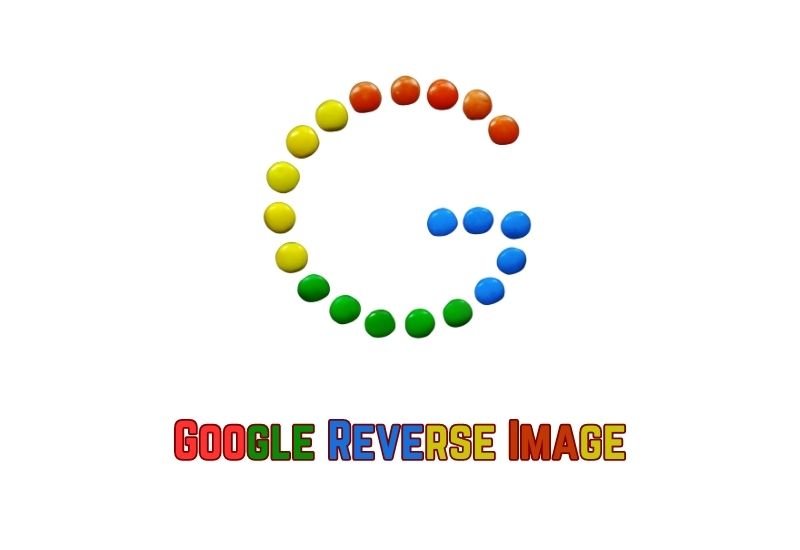Ultimate Guide to Google Reverse Image Search for Investigative Purposes
Aaron Alston
. 3 min read
Since 2011, the internet giant Google has been offering a service known as Google Reverse Image Search, which is more accurately referred to as Google Search by Images. Whether you're a photographer, on vacation in a foreign country, or you've come across something unfamiliar that has in some way piqued your interest, you can access it from the search box that Google Images provides, and once you learn how to use it, it can be incredibly helpful. Additionally, if you're looking for a more interactive experience to discuss and explore images, you can try omegle chat, a platform that connects you with random individuals around the world.

What does the term "Reverse Image Search" mean?
The process of doing a reverse image search is not as difficult as it may sound. It is as easy as searching the internet using an image as opposed to keywords. You can upload your image (or paste in the image's URL), then hit "search," and you will be presented with a ton of useful information, such as: The sizes in which the image appears across the web. Keywords or possible related searches to the image. A list of links where the image appears online.
Pictures that are visually comparable to one another
As you can see, conducting a reverse image search enables you to investigate an image in greater detail, which can be quite useful. It is possible to conduct a reverse image search by utilizing the search engine of your choice, such as Google, Bing, or Yandex. TinEye is a tool that can be used if you prefer to make use of a search engine that was developed specifically for the purpose of conducting reverse image searches.
What exactly is the function of a reverse image search?
Journalists can use the option to conduct a reverse image search in order to discover the original source of an image or to learn the approximate date that a picture was first uploaded to the internet. The search by image' feature allows photographers to learn about other websites that are using their photographs without their permission. During the conflict between Ukraine and Russia, propaganda campaigns have become commonplace.
What Exactly is meant by the term "Google Image Reverse Search"?
A Google image reverse search, just like any other text-based inquiry, will return a list of search results. Instead of displaying a gallery of photographs, it will show you the pages on which this image has been used. Additionally, it will provide a link to an image search function where you can find comparable images and conduct a search that is related to this one. It is also possible to conduct a reverse image search in a variety of different ways, regardless of whether you are using a mobile device or a desktop computer.
How to Conduct a Search Using a Reverse Image on a Personal Computer?
You can search by text, image, or voice once you are on the Google Images page. This option is available once you click through to the page. Simply clicking on the image of the camera will initiate a search using the inverted image. After that, a pop-up window will appear, providing you with a number of different options for searching by image. The act of dragging and dropping images is quickly becoming the method of choice for many users.
On-the-go image search in the opposite direction on a mobile device
You can perform a reverse image search using Google's "Search by Image" functionality, which is a helpful feature that lets you look for related images by allowing you to upload an image or an image URL and then searching for related images. The image that you have provided will be analyzed by sophisticated algorithms, and then others will be located that are similar to the one that was analyzed.
Search Using A Picture That You've Saved On Your Android Device
At the very bottom of your screen, you will see the search results that are relevant to the image you currently have open. You will be able to perform a Google image search in reverse using this method on your Android smartphone.
Conclusion
To summarize, Google Reverse Image Search or Google Search by Images is a service that allows users to search the internet by using an image instead of text-based keywords. By uploading an image or pasting an image URL, users can find information such as the sizes of the image across the web, related keywords, links where the image appears, and for photographers to locate websites that use their images without permission. Google Images offers a search by image function for desktop and mobile devices, as well as the Google Lens app for direct reverse image searching.
More Stories from
Fortifying Digital Assets: Ensuring Robust IP Security in a Connected World
It highlights the value of safeguarding intellectual property from external and internal threats, emphasizing the preservation of innovation and competitive advantage.
Multipurpose Internet Mail Extension (MIME): Enabling Diverse Content in Email Communications
The Multipurpose Internet Mail Extension (MIME) is a pivotal protocol that transformed email communication by allowing the exchange of diverse content beyond plain text.
Decoding the DNS: Enabling Seamless Internet Connectivity
The Domain Name Service (DNS) is a vital system that translates user-friendly domain names into machine-readable IP addresses, enabling seamless internet connectivity.
LAN Event Generator: Powering the Next Generation of Local Area Network Gatherings
Discover the game-changing impact of the LAN Event Generator, a sophisticated software application designed to streamline the organization of LAN events.
Google Photos: Your Ultimate Digital Memory Keeper
Explore Google Photos: Your ultimate memory keeper with automatic backup, smart organization, and easy sharing features.









.png?width=40&aspect_ratio=1:1)


.png?width=40&aspect_ratio=1:1)